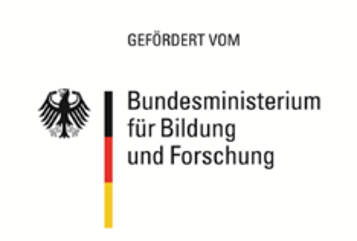Literatur zur Krisenkommunikation
Are People With Chronic Diseases Satisfied With the Online Health Information Related to COVID-19 During the Pandemic?
Beschreibung
Purpose: A deluge of fake news and misinformation about the coronavirus disease 2019 (COVID-19) on the Internet poses challenges for the public in their search for reliable and relevant health information for taking protective measures, especially among people with chronic diseases (PWCD). This study aimed to (a) understand the satisfaction level of the online information related to COVID-19 in people with and without chronic diseases; (b) explore information-searching behavior and digital health literacy in PWCD; and (3) identify the possible predictors of information satisfaction among PWCD.
Methods: This was a multicity, cross-sectional study using an online survey with a convenience sample of people who (a) were 15 years of age or older and (b) had access to the Internet in mainland China, Hong Kong, and Macau.
Findings: Four thousand four hundred and seventy-two subjects completed the survey, of whom less than 50% felt satisfied with the online information. About 20% of respondents (n = 882) were diagnosed with at least one chronic disease and reported a lower level of information satisfaction (p = .003) than the people without chronic diseases. The majority of the PWCD obtained their online health information from social media. Higher digital health literacy (adjusted odds ratio [OR] = 5.07), higher frequency of searches regarding symptoms of COVID-19 (adjusted OR = 2.07), higher perceived importance of quickly learning from the information searched (adjusted OR = 1.63), and lower frequency of searches on the topic of dealing with psychological stress (adjusted OR = 0.54) were found to be predictors of information satisfaction among PWCD.
Conclusions: The majority of PWCD sought online information related to COVID-19 from social media, and their level of information satisfaction was significantly lower than among people without chronic diseases. Digital health literacy is a strong and significant predictor of information satisfaction.
Clinical RelevanceE: To support PWCD, we not only have to provide them with clear and accurate information, but also promote their digital health literacy so that they may seek, understand, and appraise health information from the Internet to make appropriate health-related judgments and decisions.
Erschienen
2021
Themen
Krisenkommunikation
Vulnerable Gruppen
Vulnerable Gruppen
Autor*innen
Kor, Patrick Pui Kin
Leung, Angela Yee Man
Parial, Laurence Lloyd
Wong, Eliza Mi Ling
Dadaczynski, Kevin
Okan, Orkan
Amoah, Padmore Adusei
Wang, Shan Shan
Deng, Renli
Cheung, Teris Cheuk Chi
Molassiotis, Alex
Leung, Angela Yee Man
Parial, Laurence Lloyd
Wong, Eliza Mi Ling
Dadaczynski, Kevin
Okan, Orkan
Amoah, Padmore Adusei
Wang, Shan Shan
Deng, Renli
Cheung, Teris Cheuk Chi
Molassiotis, Alex
Verlag
Sigma Theta Tau International Honor Society of Nursing
Zeitschrift
Journal of nursing scholarship
Band
53
DOI
10.1111/jnu.12616
